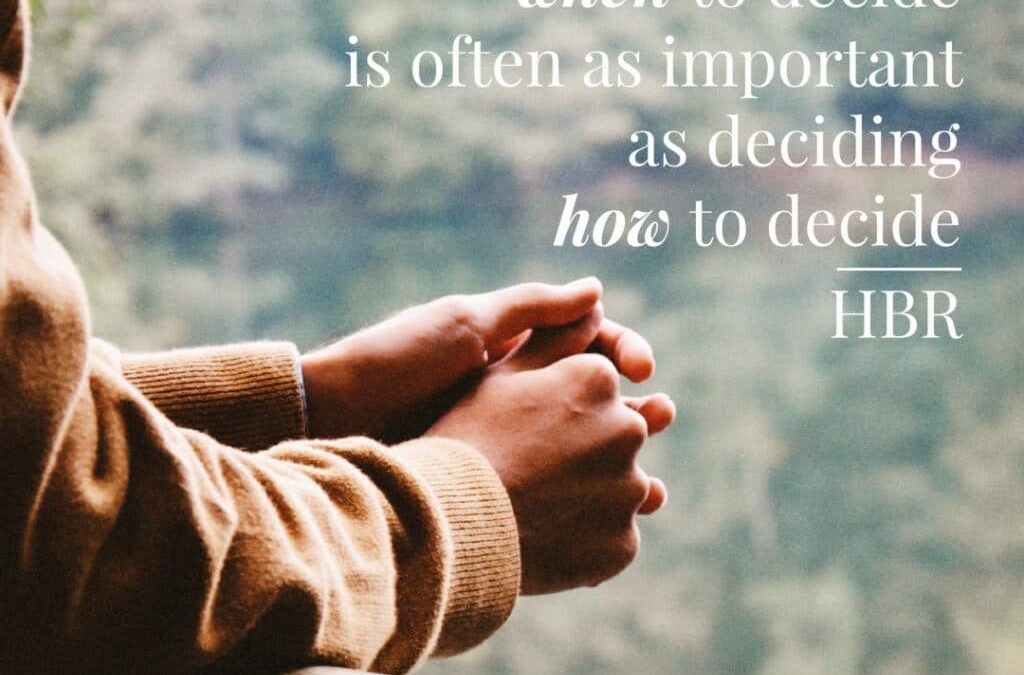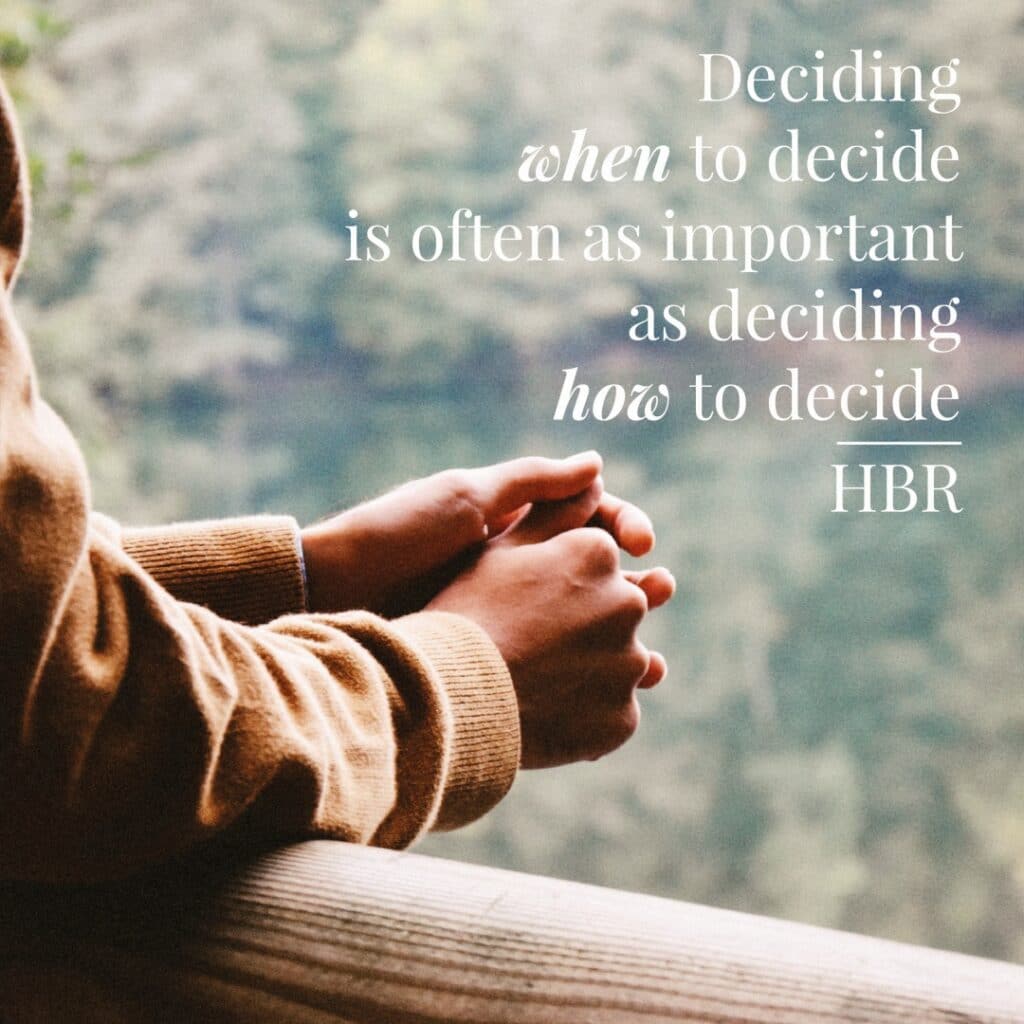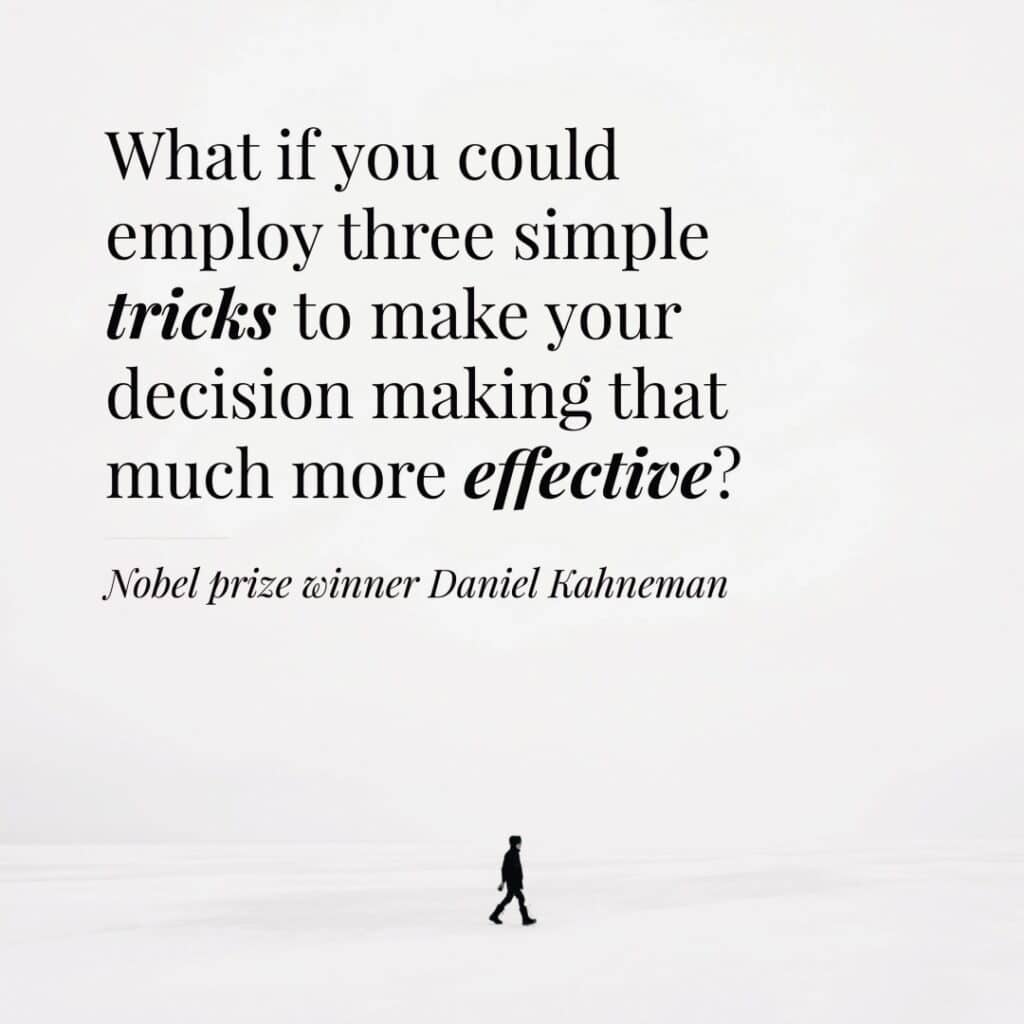
Decision Making
Decision Making
Visit our Program Dates, join us, and have a unique Harvard Experience!

In their Harvard Business Review article “Deciding How to decide” Hugh Courtney, Dan Lovallo and Camina Clarke share a model for matching the decision-making tool to the decision at hand, through three factors:
- How well you understand the variables that will determine success,
- How well you can predict the range of possible outcomes,
- How centralized the relevant information is.
-
Here’s some inspiration for lightening your decision-making, shared by Daniel Kahneman (Nobel Prize-Winning Psychologist):
Overcome WYSIATI
“WYSIATI is short for What You See Is All There Is, and it is something that our brains are trained to believe — that all of the information gathered from our impressions is enough to make a good judgment. It prevents us from seeking new, critical information.
When making important decisions, we too often believe that WYSIATI. Utilizing ‘slow thinking’ (System 2 in Kahneman’s theory) can allow us to take in all of the important information to synthesize better and more discerning strategies”
Try a Premortem
“Say you’re facing an important decision. Now imagine that you had the wrong solution, and then picture yourself a year later, and figure out, with the benefit of (prospective) hindsight, where it all went wrong. Say you’re a doctor who has operated on a patient. That patient died. Why? Figure it out before you ever make the misstep — that’s a premortem”.
Map Your Decisions
You will recognize repeated mistakes that you have made and you will be aware of them when you are making decisions in the future. You can track this in a Moleskin notebook, a bunch of napkins you keep in a drawer or in a digital text document. Whatever works for you. Be diligent about it. Approach it like a project, and refer back to it often.

